Arigatou International organized a Round Table on the theme “Potentials and Pitfalls in Interfaith Cooperation for and with Children” to learn from the combined experience of the international guests in Japan for Myochikai’s 60th anniversary.
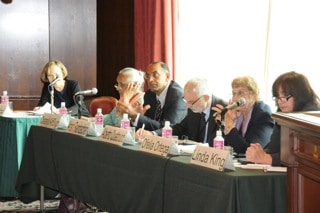 Taking advantage of the presence of representatives from religious communities as well as delegates from governmental and inter-governmental institutions, the Round Table provided an opportunity for this diverse group of experts to consider the crucial issues in interfaith cooperation for children. Committed to pursuing its priorities, to raise awareness of children’s issues through creative engagement for their rights and welfare, Arigatou International asked the Round Table to consider some of the possibilities and difficulties in interfaith cooperation for and with children.
Taking advantage of the presence of representatives from religious communities as well as delegates from governmental and inter-governmental institutions, the Round Table provided an opportunity for this diverse group of experts to consider the crucial issues in interfaith cooperation for children. Committed to pursuing its priorities, to raise awareness of children’s issues through creative engagement for their rights and welfare, Arigatou International asked the Round Table to consider some of the possibilities and difficulties in interfaith cooperation for and with children.
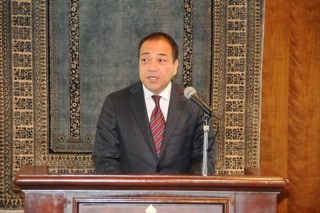 Around 60 participants attended, interacting with those who had been asked to provide discussion starters. Rev. Keishi Miyamoto, President, Arigatou International, opened the Round Table, followed by introductory remarks from Rev. Dr. Hans Ucko, former Director of the World Council of Churches Dialogue unit and Co-Chair of the World Day of Prayer and Action initiative. The Round Table was moderated by Dr. Heidi Hadsell, President of Hartford Seminary in Connecticut in the USA.
Around 60 participants attended, interacting with those who had been asked to provide discussion starters. Rev. Keishi Miyamoto, President, Arigatou International, opened the Round Table, followed by introductory remarks from Rev. Dr. Hans Ucko, former Director of the World Council of Churches Dialogue unit and Co-Chair of the World Day of Prayer and Action initiative. The Round Table was moderated by Dr. Heidi Hadsell, President of Hartford Seminary in Connecticut in the USA.
Among other things, the Round Table considered the following issues:
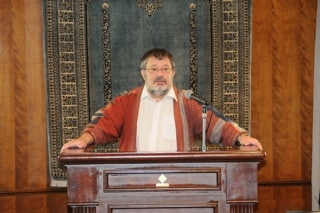 Communities of faith, individuals of various religious traditions, governmental and inter-governmental institutions are increasingly involved in inter-religious initiatives that address social issues of common concern. Arigatou International is active in interfaith initiatives focusing on the rights and well-being of children, and various representatives of religious communities have been called on to join in this effort. Arigatou is also actively involved with governmental and inter-governmental institutions looking to religious constituencies for leadership in providing ethics education and social services.
Communities of faith, individuals of various religious traditions, governmental and inter-governmental institutions are increasingly involved in inter-religious initiatives that address social issues of common concern. Arigatou International is active in interfaith initiatives focusing on the rights and well-being of children, and various representatives of religious communities have been called on to join in this effort. Arigatou is also actively involved with governmental and inter-governmental institutions looking to religious constituencies for leadership in providing ethics education and social services.
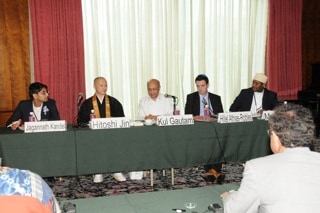 Individuals and communities may however, even with the best of intentions, encounter problems and difficulties in inter-religious relations and cooperation. Sometimes, the call for dialogue is met with hesitation, suspicion, indifference, or opposition both from within one’s own community and from other religious communities. Sometimes the possible outcome of dialogue does not seem enough to really justify participation. And moreover, at a global level intolerance and conflict among religious and ethnic communities can counteract the desire to cooperate across religious boundaries.
Individuals and communities may however, even with the best of intentions, encounter problems and difficulties in inter-religious relations and cooperation. Sometimes, the call for dialogue is met with hesitation, suspicion, indifference, or opposition both from within one’s own community and from other religious communities. Sometimes the possible outcome of dialogue does not seem enough to really justify participation. And moreover, at a global level intolerance and conflict among religious and ethnic communities can counteract the desire to cooperate across religious boundaries.
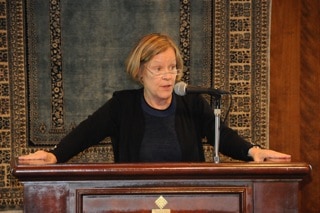 Knowing that motivations for dialogue can sometimes be conditioned by power relations between religious communities and by the importance, objective and subjective, of numerical disparities, inter-religious cooperation should not shy away from recognising the effects of uneven power relations and the impact of mutual perceptions, no matter how distorted they are.
Knowing that motivations for dialogue can sometimes be conditioned by power relations between religious communities and by the importance, objective and subjective, of numerical disparities, inter-religious cooperation should not shy away from recognising the effects of uneven power relations and the impact of mutual perceptions, no matter how distorted they are.
Furthermore, there are more often than not expectations that interfaith cooperation can significantly contribute towards resolving political or communal conflicts and restoring peace. But the impact of dialogue in the context of conflicts may sometimes disappoint these high expectations. When it is unable to quell conflict or demonstrate clear and instantly recognizable results, its relevance is questioned.
Please click here to read the report of the Round Table.